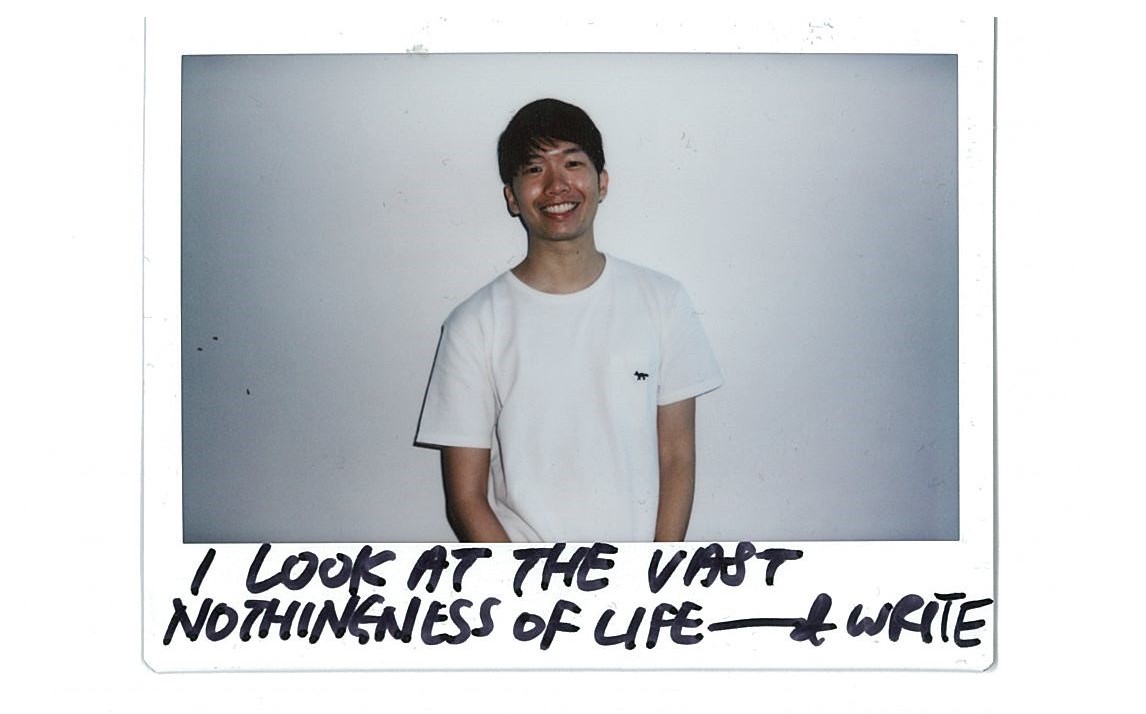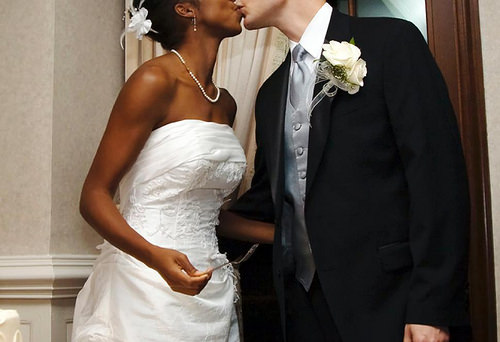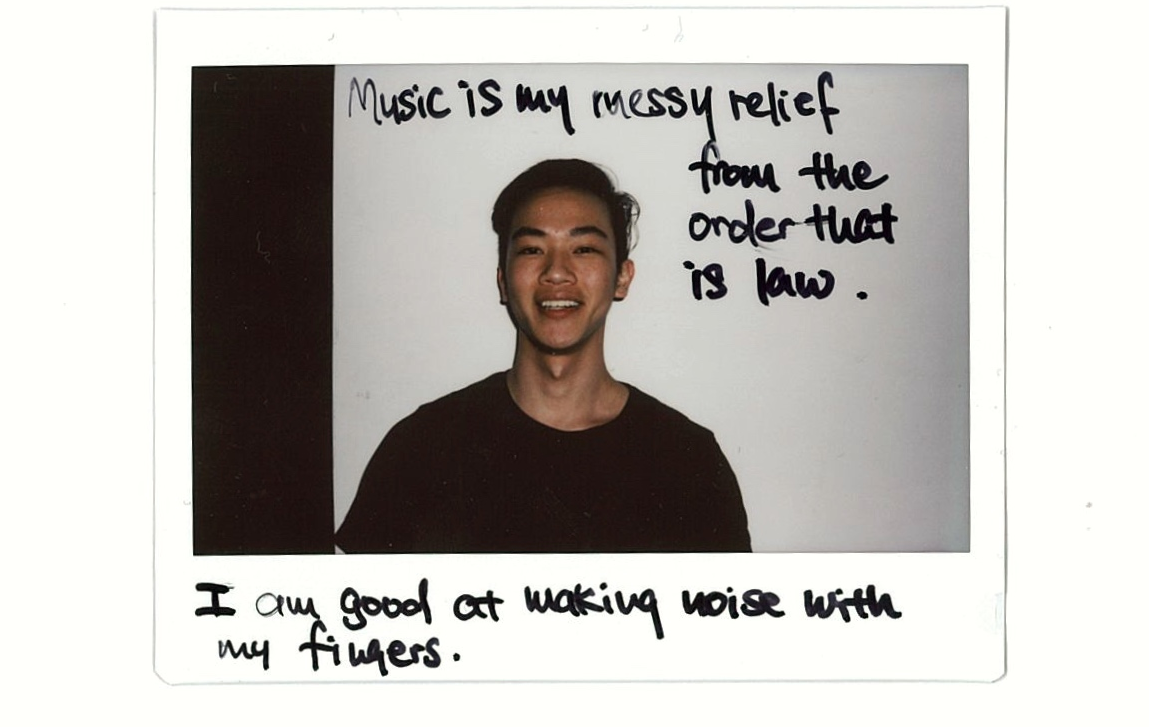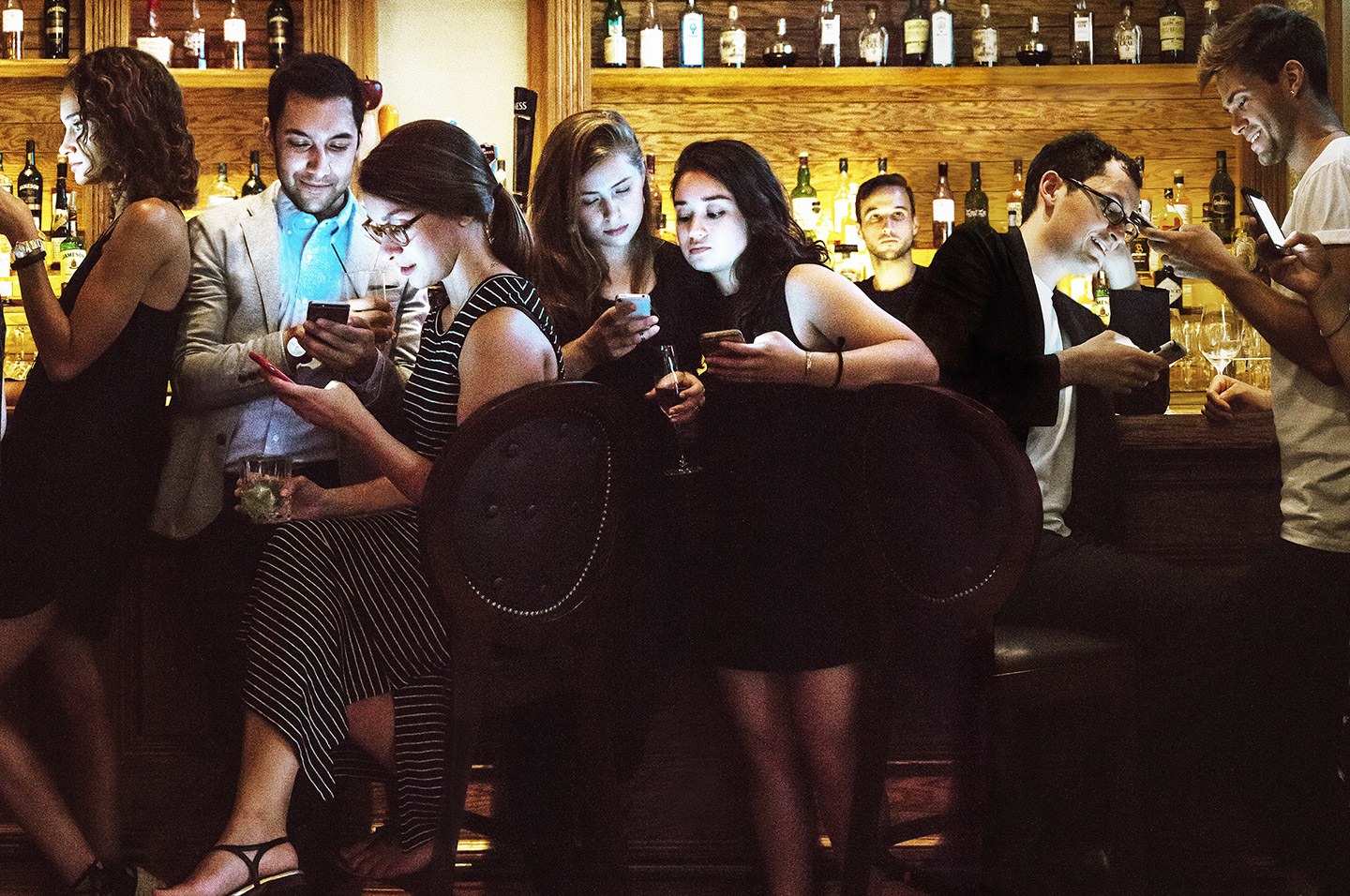Breakups are tough. Not only are they tough to get through, they're tough to initiate.
It can be hard to tell someone you used to like (or <a href=" the real reason why you're initiating the break. Maybe you're harbouring feelings for someone else. Maybe they've changed. Maybe you realised they're assholes.
Whatever it is, the truth is hard to tell, which is why some people would rather tell a lie--even if it's a shitty one.
We’ve all either experienced first-hand or know of someone who's been jilted without being given a proper explanation--or who's been given one that's so ridiculous, it can't be right. We reached out to some Singaporeans, and here are 10 of the most unbelievable reasons we've found ex-es gave for breaking up.
* Some names have been changed for privacy reasons.
1. “I don't like it when you don’t put the money in the cashier’s hands”
I felt our <a href=" had problems. I chatted with him about it and it turned into a fight. Because I have trouble counting money, I always put coins on the table to count. He told me the only time that I put the money into the cashier's hands was when I bought Gong Cha. And he wasn’t happy because he didn’t like the way I put the money on the table instead of into the cashier's hands. – Roycelyn, 262. “You didn’t buy the sneakers you promised”
He’s a sneakerhead. I was late for one <a href=" and he got mad. When I met him, I tried to appease him by saying “Okay, okay, I'll buy shoes ok? Don't be angry.” All was fine and dandy until 2 weeks later, when he asked, "So where are your shoes?" I was stunned by the question. I told him that I said it so he would be happy. He was quiet for the rest of the date. When he went home, he posted a Facebook status: "Don't make promises you can't keep." It went downhill from there. – Tammy, 263. “You’re not a virgin anymore, and it’s not like you were great in bed anyway”
A jerk had sex with my friend and dumped her because she was no longer a virgin after that. He added that he found her not as satisfying or as amazing in bed as those online videos made it out to be. – Kian Wai, 264. “I don’t agree with the choice of wedding venue”
We were supposed to have one wedding reception to host her family and friends and a separate reception for my side. Our 3 year relationship ended because she or her family was not agreeable to the choice of venue for the wedding reception on my side. – Sapi, 265. “You ignored my phone calls, so you must be going out with other guys”
If I didn’t reply him within 5 minutes, even during work hours, he would kick up a fuss. And even if I went out with long-time friends, he’d get paranoid as long as there’s a guy around. I happened to be busy this once and didn’t pick up his calls for a few hours, and he assumed that I was out with guys. So he broke up with me. – Kelly, 266. “Your A-level results are better than mine”
We’d been dating for a few months and he broke up with me because he couldn’t accept that my A level results were better than his. – Mandy, 257. “The way you open a bag of potato chips is wrong”
A friend broke up with her partner because they couldn’t agree on how to open a bag of potato chips. One wanted to tear it open from the jagged edge, while the other insisted on splitting it open from the middle. It brought out the worst in them, along with the realisation that they were so different and stubborn. So they called it quits. – Jeremiah, 298. “I suddenly realised you don’t dress well enough”
He was very sweet for the whole month we were dating. Then, out of the blue, he said he wanted to break up because I didn’t dress well enough. When I asked why he even dated me when he didn’t like how I dressed, he said it didn’t bother him until then. It wasn’t even triggered by any particular event or special occasion. He just ‘suddenly realised’ he didn’t like it. – Betty, 259. “You have too many pretty female friends”
My friend got dumped because his girlfriend found that he had too many pretty female friends around him, and that made her feel insecure. – Roger, 3010. “I really, really want to be and miss being single”
She broke up with me and said that she really, really wanted to be and missed being single. She said that she still loved me, but she needed to break up with me and be alone, or else she would forever regret it and think about the ‘what ifs’. – Jun Bin, 26Break Up Properly, Can?
Seriously guys, if you need to break up, do it right. These reasons aren’t any better than just plainly saying, “I don’t like you anymore.” We've all had bad relationship experiences--some worse than others--but that doesn't mean you should give up on love. Try your luck <a href=" Hopefully, the next guy (or girl) won't be a jerk. What are some unbelievable reasons you’ve been given or heard of? Share them with us in the comments! Also read, NSFs Don’t Deserve The Flak They’re Getting – Here’s Why.The trick to writing a book is to not date anyone while doing it—at least, according to author of <a href=" Quartet, Daryl Yam. Well, that’s at least a part of it.
Daryl laughingly recalls being unable to “get shit done” in the early stages of writing his novel, while in Singapore and dating. Writing is, after all, a solitary activity. It was only when he resolved not to see anyone and to focus all of his attention on writing, right before leaving for Japan for exchange that this two and a half year long project properly began. To date, it is his largest and proudest undertaking yet.
The process of writing the book is, of course, not without its own funny stories. Daryl confesses to Googling “how to finish your novel” when he had two chapters left to write and not a clue as to how to do it. Surprisingly (or not), it was through the advice of “some guy on the Internet” that he overcame his writer’s block and managed to complete his book.
This slideshow requires JavaScript.
Daryl feels like he’s always had a penchant for writing. Unlike many others who are either prodded onto their paths by the encouragement of wise elders or from being inspired by someone or some work, Daryl’s first spark of interest in writing came from being told precisely not to do it. As a young boy, Daryl was often discouraged by his teachers from writing. When he was twelve and writing compositions in preparation for PSLE, his teacher left a comment on one of his papers advising him not to write ghost stories. A separate incident saw him in the Principal’s office, because his principal wanted to know why he kept using female protagonists and female points-of-view in his stories. While such experiences might quash others’ interests in writing, this only evoked the opposite reaction in Daryl. In fact, he believes it was through these incidents that his passion for writing was truly ignited, as he realized just how affective literature—the writing of others and of his own—could be.“Instead of feeling discouraged, I felt oddly inspired by how the words of a child could provoke such anxieties in adults.”
When did you decide that you wanted to write a book, and how was the idea for this book conceived? I decided to write Kappa Quartet when I was in my second year at the University of Warwick. I was experiencing many things at the time – spring awakenings, beautiful friendship, a renewed interest in art and culture – and it had all culminated in a desire to finally embark on a book-length project. I felt like I had something to say, really, about the life that I’ve come to know and the many other lives that I’ll never be able to. And like all other things the idea for the book came to me in the shower. I had my head down, directly beneath the shower head, when I had asked myself what it would be like to be a kappa – to have a hole in your head in which you’re meant to store water – to have an emptiness of sorts hardwired into your anatomy, to be born with it and have the state of your own humanity completely defined by it. I felt very inspired by this, and totally invigorated. It spoke to me on many levels. What was the hardest part about completing this book? And what was the most rewarding? I think the hardest thing I’ve ever faced was self-doubt. I invested a lot of myself in this first book. With Kappa Quartet, I wanted to be conscious of the fact that this book would capture a lot of my style and sensibilities as a writer, and of course I was worried that people might look at it and dismiss it for being too strange. I was worried it might be inadequate for some people, and I think that anxiety is something many people can relate to. And so, I found it equally rewarding when I found validation from a variety of sources, such as my peers, my publisher, my family. It’s the kind of support I’ve received for which I am very, very grateful. Did you always think being a full-time writer/novelist was a viable career option? No, actually. I never thought it was possible, especially in Singapore. If we were a bigger country with a bigger population of readers – sure. But here, no. How did you deal with that and get to where you are today? I tried to be very idealistic about it when I had turned twenty. I thought journalism was a way I could earn a regular income and support more creative endeavours on the side, but a few months into an internship with The New Paper quickly taught me that journalism wasn’t something I could do nine-to-five with tons of free time to spare. And then I went to university, relishing all the free time I had as a student – I had the ability to negotiate how my time would be spent, and it was in those years when I had a lot of writing and reading done. Today I am employed by Sing Lit Station, a non-profit and charity that executes and manages a number of literary programmes and initiatives. It’s a job with flexible hours that allows me to write while doing something that I feel is rewarding for both the industry and the public at large. It’s great. Do you ever feel unsure if you’re on the right path? If so, how do you deal with it? And if not, how do you know you’re exactly where you should be? There’s a moment in Chapter 4 of Kappa Quartet, when a character named Takao turns to his friend and asks her, point blank, if a person can still feel lost, even when they are right at the place where they are meant to be. It’s a gentle moment with frightening repercussions. Even I can’t quite wrap my head around this dilemma. I think of myself as a boat with sails and a pair of oars: I have a destination in mind, and I have all the things I need to get me where I want to be. But the sea is ever-changing, as is the wind; they do not bend to your goals, or to any of your great desires; there will be moments when I have the help of external forces, and there will be moments when I have no one but myself. For me I have nothing but a goal, and if every step I take brings me closer to that goal, I’m fine. What are some plans you have for the future? I have a manuscript of poetry and short stories at the moment, which I plan to refine and rewrite with an editorial team next year. In the meantime, I am also busy reading as much as I can and getting acquainted with science fiction in preparation for my second novel. What do you think of the literature scene in Singapore currently, and where do you see it going? I think it’s a really wonderful time to be writing in Singapore. There are now many opportunities in place to push local literature away from niche circles into a more public and even global stage, which will in turn shape the way we write and how we conceive of our intended audiences. There is also a raised political consciousness in both the writing and reading communities, and a population that’s more engaged in critical thought and civic engagement can only spell good things for the development of the arts in general. It’s a tension, I think, that will benefit the growth of artists and art-makers in the long run. There was a really insightful lecture Gwee Li Sui gave at this year’s Singapore Writers Festival that sought to predict the various ways in which Singapore literature can develop, and I think all of those ways are real possibilities for the development of Singaporean literature. For me, the most ideal path for local literature to take would be one that expanded its reach while deepening its duty to storytelling, to critical thought, to art, to culture, to the growth and blossoming of the human soul. Is that asking for too much? I don’t know.I am Singaporean. I was born in Singapore to parents who are of Chinese descent. I also used to have a strong American accent.
Now, let’s get all the usual questions out of the way.
Was I faking it? No.
Do I have an “ang moh” girlfriend or boyfriend? No.
Am I “mixed”? Not that I know of.
Did I study in America? Yes, for a semester.
How did I pick up the accent so fast? Why and how did I lose it?
Funny you should ask.
Adding To A Blank Slate
As many Singaporeans with accents should know, picking up a new accent as a Singaporean is actually incredibly easy. Why? Because the ‘Singapore accent’ is pretty much a blank slate. Everyone says that their own country’s accent is no accent at all, because that’s the one they’re most familiar with. In the case of Singapore, however, that might be especially true. The Singapore accent is defined almost entirely by a lack of what typically constitutes an accent. Intonation, emphasis – all of these are almost completely missing in the Singapore accent, which employs constant and unchanging monotone, loudness, and tempo. So lacking in tonal character is our accent, in fact, that we have to invent and add non-English words a.k.a. Singlish to our speech in order to convey any sense of emotion or nuance. With its minimalistic nature, the Singapore accent thus becomes surprisingly easy to overwrite when exposed sufficiently to another accent. You just have to talk to people.Facing Judgement
There will always be a large portion of dyed-in-the-wool Singaporeans who believe that any Singaporean who speaks in a foreign accent is either “faking it” or just “not a true Singaporean”. Chances are, these people have either never lived overseas in other English-speaking countries, or lived overseas but refused to socialize actively with the locals. After returning to Singapore with an American accent that I couldn’t hide, I faced no small amount of judgement from this group of people. They just couldn’t fathom how a Singaporean could genuinely speak with an accent. They gave me funny looks, and snarky questions and comments like, “Why are you talking like that?”, “You’re faking right?”, “It feels so weird talking to you now,” or, “Your accent sounds confused.” Because apparently, the manner in which words came out of my mouth had to match up perfectly with my skin colour and nationality. Eventually, the stress and discomfort of being judged whenever I spoke and sounding different from everyone got to me, and I slowly lost my American accent. It took about a year before my accent was virtually undetectable, a much longer time than what it took for me to gain it, and sometimes I wonder if I should have stood up to the judgement and done more to maintain that part of me. Or perhaps it was just a matter of exposure, and there was nothing I could do. When a white person speaks with an accent in Singapore, no one bats an eye. But when an Asian speaks with an accent, tongues start wagging and eyebrows furrow with confusion. “Is he Singaporean?” “Is he ABC?” “Is he faking? I can’t tell.” How about you mind your own business, you racist little tw*t? Maybe, it's the strong sense of nationalism that our government has hammered into us from childhood, or maybe it's the irrationally strong connection we subscribe to between race and language, perpetrated by the 'mother tongue' syllabus. In any case, a modern, metropolitan Singapore would certainly be better off understanding that different people talk differently, and that's okay. Top Image Credit"I don't know how to act my age. I've never been this age before."
People say you’re supposed to be an adult at age 18, 21, 24. People say a lot of things, but as you check each of those birthdays off the calendar, thinking the next one will be the one, you start to wonder: Am I ever going to feel like an adult?
When you were a child or teenager, the “adult” was a concept of something that you were not. Like, “I don’t know what the hell it means to be an adult, but I sure as hell know I’m not one, so yeah! Take that, old people!”
You didn’t know exactly what it meant to be an adult, but you knew you weren’t one for sure. I mean, how could you be, right? But as you got older, it became harder and harder to convince yourself that you weren’t an adult, and you started to wonder why you hadn’t hit that stride that would carry you into being a proper adult like your parents.
I think the truth is that you never will.
None of us actually ‘become’ adults, we just kind of… are.
Growing up is a process of learning many different new things, and letting go of many of the things that defined our younger selves. For some of us, we might have let go of our crazy, impossible dreams, like the dream teenage me had of being a rock star. Or, we let go of the all-consuming desire to be liked and popular.
Being an adult is not just about learning how to pay your taxes and make money at your job and gamble with stocks; it’s also about unlearning things from your younger days, for better or worse.
For every bad habit we let go of as we mature, we often let go of good character traits as well, and learn terrible things from the people who call themselves adults. We learn to be judgemental, to discriminate. We learn the difficult truths that selfishness is the law of the land, and that there is no such thing as good or bad, right or wrong.
Adulthood is about learning, first and foremost. But since we learn throughout our lives, the process of becoming an adult is really an ongoing one. In that sense, if we grow into adults, then the ‘adult’ is really just a perfect version of ourselves that we can never be, like a dog chasing its own tail.
For what it’s worth, though, here are a few lessons I’ve learnt that have helped me in some little way in my clueless fumble through adulthood. Maybe they’ll help you too. Well, probably not, but who knows right?
To Be Happy Is to not give a f*ck
In ‘simpler’ times, all people had to care about was food, water, shelter, and sex. That was it. Get fed, get hydrated, find a cave, get laid. Now, we have a laundry list of stupid little things, including laundry, to attend to, and it’s frankly exhausting af. Is it better than living in the jungle and worrying about getting mauled by tigers? Probably. But it’s still exhausting af. People use the term ‘carefree’ as if it’s something they want, something they aspire to, but they do absolutely nothing to achieve it. Too many people care way too much about way too many things, and in doing so neglect the truly important things in life. Trim the fat. Pick your battles. Stop caring about things that are not important.Other people’s opinions of you are none of your business
Speaking of not giving a f*ck, one of the stupidest things to give a f*ck about is the opinion someone else has of you. Especially stupid is when you care about the opinions of people you don’t even know. That is the kind of nonsense high schoolers worry themselves with. So, f*ck those people staring at you on the train. F*ck superficial acquaintances who think they know everything about you because they’re such great judges of character. F*ck the things people say about you but are too spineless to say to you. They don’t matter. And your opinions of others shouldn’t matter to them either.Everyone thinks they’re the good guy
In the process of becoming an adult, you realize that the ‘good guys’ – sold to you by the media as kids – don’t actually exist. Right or wrong is all a matter of perception. There is no such thing as an objectively ‘good’ or ‘bad’ person, only a person who is good or bad for you. When you learn this, you stop chasing someone else’s ideals of what it means to be good, and start focusing on your own version of being a good person. You understand that the righteous hate you have for others is all bullshit, and you become more understanding of the differences between people. You learn that there is often no point in trying to convince someone to see things from your point of view, and to instead live in a state of mindful acceptance with the world around you. Growing up sucks, let's be honest. But maybe next time you feel lost and confused about adulting, you can take some solace in the knowledge that everyone else is just as f*cking clueless as you are. Top Image Credit“Be yourself”, they say. “Stay true to who you are.”
Well, who is that, exactly? Who is this fabled ‘self’ that I’m supposed to be? How do I ‘be myself’? How do I know who I am?
Well...
There Is No Self
I’m about as far from religious as one can be, but I think the teachings of Buddhism can help to grant us a fair bit of insight into this topic. In Buddhism, there is the belief that there is no such thing as the ‘self’; that change is the essence of being, and all living things are wholly impermanent with no such thing as a ‘self’ within them. Now, I’m not here to crap on your belief of an eternal soul and all that, but I think the Buddhists might be on to something here with respect to the nature of the self. As a person, you are a product of an innumerable number of factors. Your experiences, upbringing, genetics, everything about you comes together to create this version of you, and as you go through life interacting with the world around you, the things that make you you change as well. Your actions are not determined by who you are. Who you are is determined by your actions. Or, as everyone’s favourite sore-throat-voiced Batman says, “It's not who I am underneath, but what I do that defines me.”The Illusion of Consciousness
Biologist and DNA co-discoverer Francis Crick famously said, “You’re nothing but a pack of neurons.” Crick may have helped to revolutionize our understanding of genetics, but his take on human life as being nothing more than a smattering of neural activity might be a little reductive. All of our emotions, memories, and thoughts, both conscious and subconscious, are the result of electrical signals coursing through the neurons of our brains. However, this interpretation of human consciousness fails to consider the external, experiential element of our interactions with the world around us. Our brains may be set to respond to things in certain ways, but our neurons cannot control what happens to us externally and how our experiences shape every aspect of our being. As living, thinking entities, we have the agency to influence our own minds and create our own identities, rather than be enslaved to them, through the decisions we make and the actions we perform. As a result of our myriad mental processes, we are fed with an illusion of self, a sort of meta-cognition. We think of ourselves as existing within our minds, passengers in our own bodies. We develop a notion of a certain inner self; a core at the centre of our very being. A version of ourselves that cannot be tarnished, shaped, corrupted, or otherwise changed by the ravages of external influence. That is all, of course, a bunch of bullshit.On Creating that which does not exist
So if the self does not exist, and therefore cannot be ‘found’, how then do we create it? We create ourselves through the things we do and the decisions we make. We craft a constantly changing, amorphous identity that is never the same one day to the next, and is never more or less real for that change. The more relevant takeway from the whole “be yourself” narrative is not to stubbornly refuse change without exception, but to simply be honest with ourselves. To do what we truly believe we should, and make sure that the actions which define us are truly reflective of the thoughts that motivate them, not the whims and sensibilities of others.Contrary to popular belief, being in an interracial relationship is not too different from being in any other relationship. We argue about the same silly things, and have the same kinds of fights.
I’ve been with my Chinese boyfriend for almost 3 years now. There’s a lot I’ve learnt about his race, and he of mine. There are however some struggles that we face being an Indian-Chinese couple in Singapore.
Like every relationship, interracial relationships have their good and bad; ours are just a little more specific.
PUBLIC ACCEPTANCE
This is something almost every interracial couple deals with. For an interracial couple to be stared at by individuals in public is not unheard of. My boyfriend and I aren't really prone to participating in public displays of affection, or as most call it, PDA, but on the rare occasions that we do, we would be lucky to get by without getting at least one stare on the public train. Public acceptance, however, doesn't just come with not getting stares anymore. If only I had a dollar for all the times someone reacted with the tone of surprise as I tell them that my boyfriend is Chinese. It’s like I’ve said the most absurd thing in the world. It’s very much similar to getting glares in public. It makes me question how well the public accepts interracial couples. Even in today’s day and age, it’s bizarre to see how many Singaporeans are surprised seeing two people from a different race in a relationship.PARENTS' APPROVAL
This is a big one. For most people, disapproval from parents can be a deal-breaker. You would be surprised at how many parents today are STILL prohibitive about who their children should date. Couples don't usually take the next step without their parents' approval in a family-oriented culture like Singapore's. Take my parents for example - their ‘ideal boy’ for me should’ve been an Indian Hindu. That clearly didn’t work out well for them. In all seriousness though, if your parents approve of the person you love, you don’t know how lucky you are.CULTURAL DIFFERENCES
Understanding another's culture takes effort. I was lucky that my boyfriend had an understanding or was at least aware of the Indian culture, having a ton of Indian friends himself. There are, however, a lot of Singaporeans that tend to not be as aware of other cultures – especially that of the minorities. However, I wouldn’t say that my boyfriend knew everything about my culture, or that I knew everything about his. In an interracial relationship, a lot of time and effort needs to be put into listening to the other talk about their traditions, rituals or even their food. And through the course of time, these cultural ‘differences’ are what bring you closer to your partner.BEYOND THE STRUGGLES
While there may be struggles to being in an interracial relationship, there are tonnes of positives as well. When you learn about another race, you look at life from a different perspective. My boyfriend never understood what it felt to be a minority in Singapore until we were together. I know it might be hard for someone not in an interracial relationship to realise this, but we’re honestly not that different. And in a society where interracial couples are growing in numbers, I can only hope that the acceptance of the public towards us sees a growth as well.We’ve heard a lot about the woes of women in Singapore – the “Pink Tax”, as it’s been called – but what about the men? What about the Blue Tax?
Yes, there are disadvantages to being a man.
Of course, we don’t believe that gender equality should be measured using tit-for-tat who-has-it-worse comparisons. There are challenges to being both male and female in Singapore, and anywhere in the world, but that doesn’t make it objectively worse to be a man or woman. We just thought it’d be fun to point these out.
National Slavery
Let’s start with the most obvious and glaring issue: National Service. Unless you’re a truly talented bullshitter, you’d find it impossible to argue that the mandatory, systematic militarization of every able-bodied male citizen in a country isn’t an unfair, raw-as-sashimi deal for the men of Singapore. The simple truth is that NS can never be fair to men unless it is made similarly mandatory for women a la Israel. “But it makes sense! Men are stronger than women!” Oh, really? What happened to “women are every bit as strong as men and can do whatever men do’? And have you ever seen how skinny some of our soldiers are? Even as a “trained soldier”, I’d be perfectly willing to admit that there are many women in Singapore who would be capable of kicking my ass and being all-round better soldiers than me given proper training. Sure, men might have a slight edge in the physical rigours of combat overall, but to be honest, any reasonably healthy human being capable of carrying a 4kg rifle can be trained for combat, and if not, service or intelligence duties. Don’t tell me women can’t carry a rifle, some of your handbags feel as heavy as cosmic singularities. You regularly pull hair out of your skin and brisk-walk around in impossibly high heels just to “look good”. You’re not fooling anyone when you say that you could never survive in NS. You just don’t want to because it looks uncomfortable and inconvenient AF. And you’re right. I never wanted to have to deal with NS either, but I was born with a Y-chromosome, so I had to. Hear that? That’s the sound of the blue tax going “cha-ching, mother*cker!”Paying for shit
Whether it’s paying for dinner, drinks, cars, or that overpriced shiny rock on an overpriced metal ring, men traditionally have to foot a much larger bill in the man-woman dynamic than women do. If you’re one of those modern women who actively espouse gender equality by splitting the bill and paying for their own shit, kudos to you. Unfortunately, many women in Singapore aren’t like that, and the men attached to these women get the short end of the monetary stick. There are some who think that since men get paid more than women for the same jobs, it all balances out. Two negatives make a positive, right? This isn’t primary school math, buddy. Two negatives, make, well, two negatives. You don’t achieve equality between genders by compensating one inequality with another. Well, there goes the blue tax counter. Let me just find a nice vantage point from which to watch my money fly away.“Being A Man”
A famous comedian once said, “Be a man! Do the right thing!” Yeah, you know who I’m talking about. Singapore’s typical Asian patriarchy likes to put constant emphasis on “being a man”, which in turn puts a ton of pressure on men to be this perfect version of what society expects them to be. Make a lot of money. Be tall. Have a wide social circle. Drive a big shiny car. Be a part-time chauffeur for free. Don’t grow your hair (or nails) out too long. Make the first move. Put food on the table. Don’t ever become a stay-at-home dad. Women, of course, have their own set of social pressures to conform to, but that takes nothing away from the challenges of being a man in Singapore. It might seem ironic, but the patriarchy screws both men and women over. Top Image CreditBy day—at least when school’s in—he spends his time with his head down in readings, pursuing a double degree in Law and Liberal Arts at the National University of Singapore and Yale-NUS College respectively. By night, he plays the guitar in 4-piece local music act Sphaeras, with bandmates Zakhran Khan (drummer), Axel Serik (bassist) and Wun Chun Kit (guitarist).
Since its humble beginnings in mid-2013 as an accidental project of four musicians who met online and who desperately wanted to use music to express themselves, Sphaeras has played several local gigs and venues, including Baybeats and at the Hard Rock Café. They’ve collaborated with numerous local and international acts including Weish and Brazilian Odradek, and to date, the band has released two albums.This slideshow requires JavaScript.
Haokai’s love for music and his band is plain to see. Despite them each having highly busy schedules—Zakhran studies architecture, Exel is a freelance music producer and photographer, and Chun Kit is a freelance sound engineer—they make it a point to jam at least once a week. Aside from a passion for music, he’s also very interested in law. “On an intellectual level, law is attractive because it provides a neat and systematic way of formulating arguments,” he shares. “Having a legal mind can help me better navigate the rules of society.” Music and law—an odd match, it might seem. But Haokai doesn’t see why it has to be either music or law. He seems to have found a sweet spot right in between, describing the two as “complementary.” Through a rigorous law training, he’s learned to be disciplined and sharp, although over the years, he’s discovered that you can’t put a hard deadline on creativity. “I approach music at my own pace. I am more productive and creative that way.” Not only has he conditioned himself to be a consistently hard worker, he’s also learnt to ‘switch off’ from time to time, and to lose himself in music—something not a lot of us know how to do in this relentlessly fast-paced hubbub we call Singapore.“I’ve always been argumentative since young, always challenging authority and never accepting any argument at face value.”
What do you love about music? It engages me unlike anything else. It’s the only medium that allows me to forget any trouble temporarily, while recharging me at the same time. Nothing quite compares to the feeling you get when you discover a band or an artist that’s ground-breakingly ingenious. It also adds flavour to life, which explains why I’m almost always plugged in while doing work. What goals do you have for music and Law? For music, my band intends to do more tours in the coming years. We have released two albums thus far that have received considerable acclaim worldwide, but a digital release is very different from playing live shows. We have fans from various countries across the world requesting for us to play in their hometowns, and we hope to bring our music to them live when the time is right. For law, I’m just trying to learn as much as I can both in law school and through internships. Being new to the game, I’m still trying to feel it out and gain as much experience as I can. In the long run, since music plays an indispensable role in my life, I hope to be able to find an area of law that can reconcile with my interest in music e.g. entertainment law, copyright law, etc. Describe managing both music and Law. How do you manage them both? I won’t pretend that I’m excellent at managing my time. In fact, I’m a terrible procrastinator. However, I am very clear about my priorities, and music and law are both high up on the list. This way, it disallows me from being distracted easily. I would often pass up social occasions to devote more time to things that matter more to me. Do you think you’ll ever come to a crossroad where you’ll have to give up one of your passions? How will you choose then? I don’t think I’ll ever have to give either up, as hard as work gets. I think, initially, when I enter the work force, music might have to take a temporary backseat for me to focus on building my career, at least in terms of playing less shows. Nonetheless, I’m merely pressing the pause button and don’t foresee music leaving my life completely. It has and will always be an essential part of my life, both as a listener and a musician. I see myself attending shows and supporting the local scene as best I can; or simply coming home to my guitar set-up and jamming for half an hour after work. Do you have any fears and hesitations when it comes to music? Not at all. I think from the start I’ve had a clear picture of what music means to me. It is simply an outlet for me to unwind and express myself creatively. Music has not disappointed me thus far, but continues to inspire me and pull me out of my darkest moments.“Sometimes I just feel like smacking you in the head over and over again.”
Who do you think said that to me? If you thought my girlfriend, you thought right.
Can’t live with them, can’t live without them, am I right girls and guys? If you feel the same way about your partner, you’re certainly not alone.
And there’s a reason for that.
Misery loves company
We like to think that we seek relationships with people who make us happy, but the whole truth may be a lot stranger than that. According to psychologists, we instinctively gravitate to potential partners who we think will make us miserable. I know that sounds ridiculous, but let me explain. It all begins with our parents, from whom we first experience and learn about love and human interaction. Everything we do later in our lives in pursuit or service of love, is influenced in some way by our understanding of human relationships that we first learned from our parents in childhood. In many ways, the love we seek as adults is actually driven by a search for the rediscovery of love we felt from our parents as children, a sort of quest for that lost paradise of childhood. Our parents made us feel loved during our developmental years, so we long to feel loved again as adults. That all sounds fine and dandy, but the problem is that parent-child relationships are often far more complicated. As most of us know, no parent is perfect, and the process of parenting always involves emotions other than love. In order to be perceived as attractive, a potential partner must often display a capacity to reconnect us with our childhood feelings – all of them. These can include feelings of inadequacy, insecurity, anxiety, and yes, anger. If your parents were overly critical and distant, you might find yourself attracted to people with similar qualities, people who constantly deny you the approval and absolution you seek. If your parents were overly submissive, you might seek partners who frustrate you with their lack of initiative or assertiveness. In finding love, we often end up choosing partners who allow us to suffer in the ways we need to suffer, in order to relive the dynamics of our childhood that we innately associate with “true” love.Role Reversal
In some cases, the parent-child relationship doesn’t always manifest in our choosing partners with similar flaws as our parents. Occasionally, we take on the role of our flawed parent, and act out the same dynamic with our partner, with him/her on the receiving end of our parent’s failings. We might constantly put our partners down or leave them uncertain of where they stand in the relationship. We might compare them to others or complain constantly about their shortcomings Either way, in our relationships, we seem doomed to seeking out the fault of our parents in our partners, or to act out these faults with our partners. Such relationship dynamics are, of course, unhealthy, but oftentimes unavoidable. The cruel and slightly hilarious irony of all this is that we end up being attracted to the kinds of relationships that our upbringings leave us most woefully ill-equipped for. Those of us who are attracted to mysterious, distant individuals, are the ones least able to deal with the long silences and feelings of separation. Those of us drawn to strong-willed, agonistic partners, are the ones whose parental abuse leave us afraid of and unwilling to deal with confrontation. The failings that most draw us in, are precisely the ones that we are least able to handle.Love amidst hate
But wait, before you pick up your phone to break up with your partner, know that there is still hope. Thankfully, just being aware of all this can be the first step to a healthier, happier relationship. These vestigial ties to our unhealthy childhood relationships lie hidden below the surface, but knowing about them allows us to yank them out of our subconscious mind, and into our waking consciousness. By knowing about the troubling dynamics that drive your infuriating relationship with your partner, you can learn to break these habits, and steer your relationship in the direction you wish through present self-correction. If you’re acting out at your partner in the same ways your parents acted towards you, try putting your partner in the shoes of childhood you. How did you feel? How did you wish your parents would have treated you instead? Now, in a peculiar way, you have the power to correct the past failings of your parents. Resist the urge to be judgemental or to make an unnecessary point. Ditch the silent treatment and passive aggression. Be a nicer version of your flawed parent. If you’re finding negative traits of your parents in your partner, imagine yourself as a person with, well, better parents. In dealing with the same frustrations that your parents put you through, try imagining how a mature person without the same issues as you would deal with them. Resist the urge to fight against your partner the way you wish childhood you had fought back against your parents. Be the person you wish to be, not the person your parents raised. Perhaps the way to a better relationship lies in recognizing its connections to the troubles of our past, and accepting that we’re with our partners not just in spite of their shortcomings, but because of them. Top Image CreditApply a spark to tinder, and you start a fire. From its name, the dating app Tinder clearly envisions itself as a catalyst of sorts; a tool that facilitates connections and gives relationships that much-needed initial push. But, is that really what it does?
Does the digital equivalent of mass speed dating (that somehow manages to be even more superficial) really promote romance, or does it go against the very essence of romantic love? Well, yes and no. It kind of depends on you.









